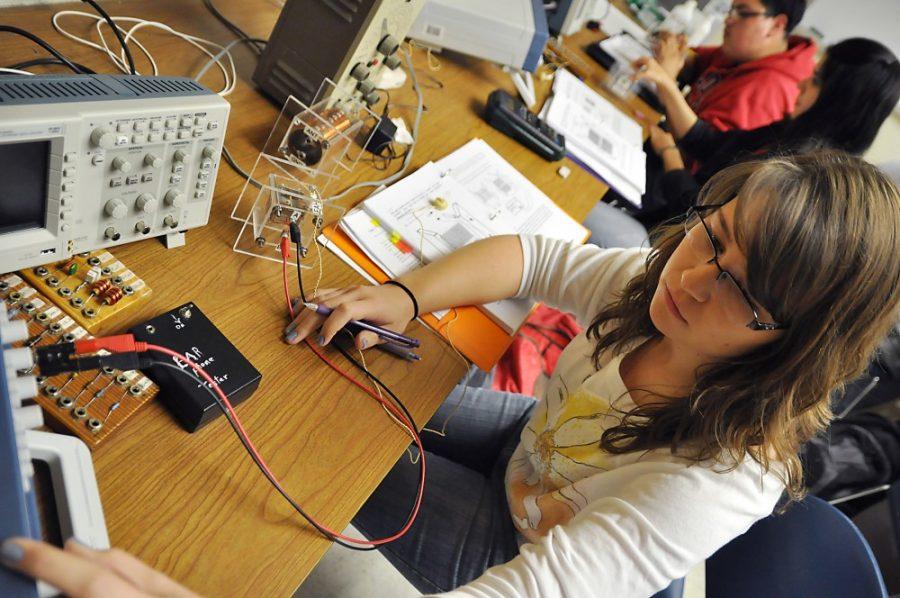The number of science degrees awarded to women has gradually increased nationwide, according to the National Center for Education Statistics.
The number of undergraduate physical science degrees earned by women increased 22.1 percent and the number of doctoral physical science degrees increased 53.7 percent from 2003 to 2009. At the UA, 60 percent of science degrees awarded in 2011 were awarded to women, a 4 percent increase from 2007.
“It’s a very interesting trend that we’re keeping an eye on,” said Elliott Cheu, the associate dean of the College of Science. “We’re happy and actually very excited that women are a significant portion of the sciences.”
But he also said the number of degrees held by women is rising because more women are entering fields that have been traditionally dominated by women, like biology. Despite the apparent increase, Cheu said that in particular majors, such as physics, the proportion of women has remained the same.
But the number of women is growing in other sciences, Cheu said. In 2007, women made up 41 percent of the psychology program. Now, women make up 48 percent. Women constituted only 2 percent of the speech and hearing science program in 2007. Since then, the proportion of women has grown to 10 percent. There are 11 women in the geosciences department today — up from 5 in 2007.
“Science and people are becoming more aware of the potential careers that are open to women,” Cheu said.
The College of Science tries to hire faculty that are representative of the ethnicity and gender composition of the college, Cheu said. He said that a diverse range of role models will encourage more women and minorities to pursue degrees in science.
Sara Pousti, a biology sophomore, said she has never felt discouraged or disadvantaged because of her gender. Instead, she said she sees the competitive nature of her field as a challenge. The challenge, however, isn’t due to her gender, but to the constant competition among science students to be the best in their respective majors.
“The bottom line is that everyone is going to be goal-oriented, everyone wants to get to the top, and the reality of it is that only a special few are going to get where they want to be,” she said. “It’s based on your abilities, not your gender.”
Pousti said she has noticed more and more young women pursuing science degrees. According to Pousti, medicine is one field that is seeing an increase because the image of the stereotypical doctor is changing. With the increase in the use of technology, Pousti said, patients desire a more “personal touch” that women may be more suited to provide.
However, other women say there is still a gender bias in the sciences.
“A lot of times girls say, ‘Oh, I’m a girl, I can just get a degree and get married,’” said Raquel Galvez, a nutritional sciences sophomore.
Galvez said that in the beginning, the number of women and men in sciences may be the same, but as students move into upper division courses, the number of women starts to decline. Galvez said she knows of female students who began as engineering majors who later chose to enter engineering management instead of becoming “real engineers.”
Women bring balance and new perspectives to the field, which gives way to more effective problem-solving, said Eugene Balaguer, an engineering freshman.
Even though men dominate the profession and members of older generations may still see engineering “as a man’s job,” the increase in women benefits engineering as a whole, Balaguer said. “It’s kind of nice that it’s not all guys anymore.”









